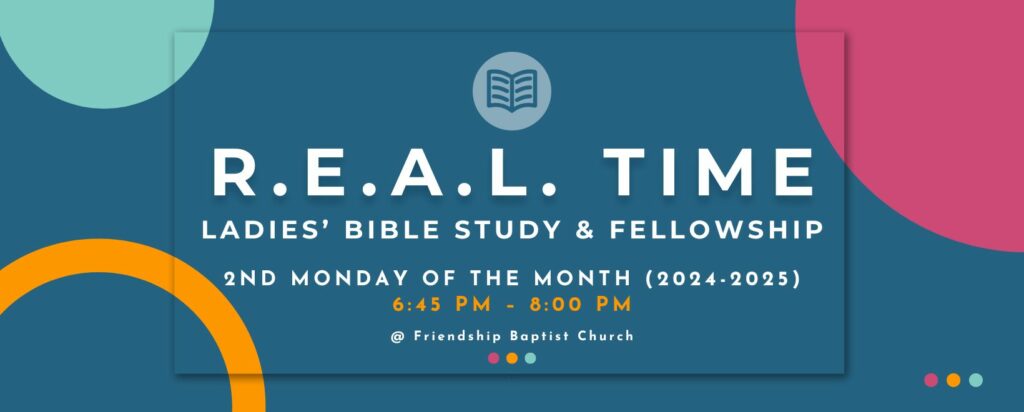The Joy of Digging Deeper
by Bethany Wilder

Fill in this blank: without the intake of Scripture, I will ________.
I’ve come up with a few for myself. Without the intake of Scripture:
- I’ll be left to my own reasoning and be easily influenced by the culture around me.
- I’ll become stagnant in my walk with God. My spiritual growth will be stunted, and I’ll drift into sin (2 Timothy 3:16-17; Psalm 119:11).
- I’ll become apathetic to eternal and spiritual things while growing in my love for things that are on earth (Colossians 3:2).
- I’ll operate in arrogance and independence, thinking I don’t really need God that much—like I desperately do (John 15:5).
As we wrapped up our most-recent ladies’ Bible study, an inductive look at the book of Titus, I thought about what made the study so special. Taking an inductive approach, we came to Scripture and allowed it to speak for itself, pulling out the meaning the author (and ultimately God) intended. We also focused on one passage of Scripture over a period of several months.

So why are these things so beneficial for Christians?
For some, it can certainly be more appealing to jump into a study titled, “My True Identity” or “Strength for My Struggles,” as opposed to simply saying, “We’re going to inductively study the book of Colossians.”
But after talking with some of our ladies, and after experiencing it myself, I know that digging deeper in one passage of Scripture for an extended amount of time—working through it section by section, picking up where you left off—that is beneficial. As Kelly Collier, the author of our Titus study said, the book of Titus has become our new “Bible friend,” and it’s simply because we kept coming back to it, spending time with it, digging deeper into it, and talking about it with others.
A Personal Testimony
While experiences aren’t what we hang our hat on, they can be encouraging, and this study actually brought about one of the most encouraging experiences with Bible study I’ve ever had. Toward the very end of our study, the author had us flip back to the beginning of the book where we had written down some ways we wanted to change over the course of the study. Admittedly before turning back those pages, I didn’t have high hopes. I didn’t anticipate the encouragement waiting for me there. I flipped back and saw a few things I had written down, and one of them jumped out at me. I wrote down a very specific area that I knew we would be studying, and until that moment, I hadn’t realized just how much God actually HAD been working in my life over the past six months. My worldview on that specific matter had changed; my desires had even changed!
I didn’t need that “aha moment” to know that the study was beneficial because God’s Word doesn’t return void. And as we grow in a personal knowledge of God, overtime, we will be changed. But I have to say, that moment was pretty neat for me. I got to share it with my small group at our last meeting, and listening to an older, wiser lady’s response of encouragement had me in tears. What a blessing to personally see God at work in my life.
It’s taken a while for me to put words to why I believe this slow, intentional, deeper study is so beneficial, but here is my feeble attempt…
Disclaimer: topical and quick devotional-type studies are totally fine and have their place, but I think it’s often easier to convince ladies of that. I’m going to make the case that slowly and deeply working through a larger passage or book of the Bible is highly beneficial, and we should probably consider spending a lot of our time there.
There is a joy in learning and understanding the Bible, all parts of it, how it comes together to tell the most beautiful story, and how each part reveals God Himself.
The Bible is made up of sixty-six smaller books, but don’t forget that it is one book with an overarching story—the greatest story ever—the story about how God set all of this in motion, His creation turned away from Him, but He had a plan to redeem and to restore them back to Himself. His Son, Jesus, willingly became man, lived perfectly on earth, took our sin upon Himself by dying on the cross. He didn’t stay dead; He rose again and is alive and ascended. He didn’t leave us to ourselves though. True followers of Christ have been given the Holy Spirit, God in us. And now we live in an age where we’re on mission to bring others into this story. In knowing Him, we have been given everything we need for life and godliness (2 Peter 1:3). God has given us His Word where He’s revealed all these things—where He’s revealed Himself.
Don’t miss the story of Scripture.
When we approach our Bibles in a way that causes us to reread the parts we like and skip everything else, frankly, we miss out, both literally and figuratively. If we view our Bibles simply as our quick little boost of encouragement to get us through a tough day at work, we’re leaving so much on the table.
YES, there is abundant encouragement to be found in the Bible, but it can go deeper and be much more lasting than just a simple out-of-context “I can do all things through Christ Who strengthens me,” or a two-minute feel-good devotional telling us to just “Be still and know that He is God.”

Let’s say you’re reading through a book of the Bible, and you come to a passage of Scripture that you don’t understand or don’t initially think is applicable to you. You plow through and think deeply about what the author (and God) are saying in context of what you’ve been studying. When you come out on the other side of that, you can have deeply-rooted convictions; you can have the joy of simply understanding what God wants us to understand; and you’ll continue to get glimpses into the mind and heart of God—Who He is, what’s important to Him, what He values.
Overtime, those glimpses of God’s glory, one after another, being deposited into your soul bank will supernaturally change you to be more like Him (2 Corinthians 3:18).
And by the way, that “feel-good” emotion you were searching for as a normal relational female? We’re not dismissing that. Not in the slightest.
Christian women, sound doctrine and theology produces personal worship
Yes, this kind of study takes time and effort and doesn’t happen instantly. But isn’t that just like anything that has a pay off? Hiking to the top of the mountain can’t be accomplished in five rushed minutes. But after putting in time and effort, you’ll be breathing in the fresh air from above, seeing the spectacular mountain top views for a beautiful payoff.
Getting in shape and reaping the benefits of that can’t happen the day after you decide to make a change. But overtime, you’ll look back with more energy, better health, and maybe a new pair of jeans. You’ll say, “That was worth the time and effort.”
Putting time and effort into Bible study has a payoff far greater than seeing the views from the top of the mountain or being physically in shape.
We see God Himself, and we’ll be changed as a result—our worldview, our motives, our attitudes, our reactions.
We’ll be convinced of truth. We’ll have hearts set on things above. We’ll value what He values. And we’ll be rewarded for it (Hebrews 11:6). And P.S. that doesn’t mean you won’t see any immediate benefits. Conviction, encouragement, soul rest, and a reorienting of heart and mind CAN happen in just one encounter with God’s Word.
The second reason this kind of studying is so beneficial is because nothing convinces me of truth more than seeing and understanding Scripture as God meant for it to be understood. It’s cohesive. It makes sense. It’s compelling.
Head into your local Christian bookstore (or search Bible studies on Amazon), and you’ll find a vast number of devotional options. And while many of these have potential to be beneficial, they oftentimes do most of the thinking for us. There is something special about seeing the Bible in context for yourself, seeing the threads woven independently throughout Scripture come together to make a beautiful and cohesive tapestry of grace.
Studying Scripture apart from its intended context leaves room to misinterpret and cause the Bible to mean whatever we want it to mean for US. And who can hang their hat on a book that means one thing to one person and something else to another? Each passage of Scripture has an intended meaning, and when we uncover that meaning and the truth along with it, we can be convinced that this book is true and unlike any other. It’s far from the fairytales from our childhood.
At the heart of this story is a God Who set everything in motion and is on a mission to redeem His creation back to Himself.
And He has revealed Himself in this Book so that we may know Him personally. When we see the mercy of God on display throughout Scripture, it produces worship and compels us to present our bodies as living sacrifices (Romans 12:1).
Below is a short interview with Mrs. Betsy Olson, a newer member here at FBC, recapping our most-recent ladies’ Bible study. You’ll hear her reference the inductive study method that we used. If you’ve never heard of this before, it has three simple steps: observation (what the text says), interpretation (what the text means), and application (why it matters). While there are many different ways to go about this type of study, our specific study focused on observing keywords in their original language, looking up cross references and allowing Scripture to interpret Scripture, paraphrasing verses in our own words, and then seeking to apply the text to our lives.
Tips to Get Started
If you want to study the Bible but aren’t sure what it “should” look like or where to start, here are a few quick tips to get you going.
- There isn’t one right way that it “should” be done. Spending time looking for God in the pages of Scripture is beneficial. Period.
- Choose a book or passage you want to study, and just start reading. Read it over and over.
- But before you start…context matters.
- Use a study Bible, a Bible handbook, or simply Google to figure out the big five: who, what, when, where, and why. Who is the author and audience? What is the genre? When was it written? What was happening in that time period? Where does it take place? Why was it written? What’s the purpose?
- There are some tools that are fairly simple to use to help you dig into the text:
- Look for keywords, repeated words, and transition words to understand the flow of thought and what’s being emphasized.
- Take it a step farther and look up keywords in the original language using a tool like Blue Letter Bible, a Bible dictionary, or my personal favorite, Literal Word.
- Look up cross references to add to your understanding and allow Scripture to interpret Scripture.
- Ask yourself simple questions like: What does this show me about God? How does this passage fit into the bigger story of Scripture? Are there any promises to claim or commands to obey? How should I go forward from here based on what I read? How do my actions, my desires, and my thoughts need to change?
- Summarize the passage in your own words. This can take some effort but can also be really helpful.

Remember, these are tools to help you go deeper, but there isn’t one right way. If it feels daunting right now, start small. Just pick a short passage to focus on for the week, and use a different tool each day. Or start with just one tool and focus on that for the entire week. And as you begin reading and studying in a deeper way, these things will come more naturally to you. You will become a better student of the Bible because you’ll be training your mind to engage with Scripture in a deeper way. And above all, remember why we do this—to know the God of the universe Who created us, loved us, and gave Himself for us. He wants us to know Him—it’s for our good and for His glory.
BUT WAIT…THERE’S MORE.

We have an opportunity for you to study the Bible with other ladies this year. Mark your calendar and plan to come to FBC on Monday night, September 9 from 6:45-8:00 for our 2024-2025 ladies’ ministry kick-off! You will hear an introductory lesson on our new study (Colossians/Philemon) and have the opportunity to purchase a resource to go along with it. You do not need to have anything ready or prepared for kick-off night! Just come learn, fellowship, and hear about opportunities for this year!
